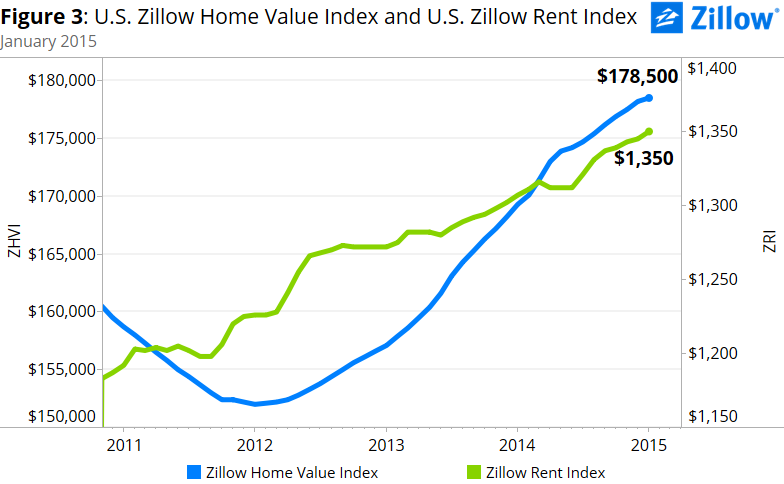Massive overpayment being timebased is a pretty easy deduction. BlackRock is a business which wants to make money. They aren't looking to sell Real Estate, but acquire it, so some sort of pump and dump isn't a viable reason. So what does overpaying get you? Certainty and speed, and given that BlackRock is buying more than one place and is using them to rent, I doubt they just fell in love with one house, hence speed is what they want.
Second, the entire concept of investment is time based: some money now traded for more money later. So thinking that BlackRock, who's constantly complaining about inflation, is investing in inflation proof assets ASAP seems like pretty solid reasoning to me. Obviously, the only thing that can really disprove a pump and dump is time, but I don't see that as likely.
Or it could be
predatory bidding, which is what everybody who actually understands economics thinks is happening and is worried about.
The issue here is they're paying 20% over the market. That's not the kind of overpayment that will be covered by mere inflation,
especially if speed is a concern. If this was a 5% overpayment that might be the kind of thing we'd see, but 20%?
Let's just do a bit of math. The inflation rate hit 5% this year which is the worst in quite some time. But there are signs the economy is already recovering so it may not continue. Across the bad old stagflation years of the 1970s it was a bit worse averaging 7.1%.
But let's assume things are going to get worse instead of better, and even the 70s were a foregleam, we'll set the inflation rate for 7.5% for the next few years.
Assuming the inflation rate hits that massive level, and real estate doesn't change value, BlackRock will break even in about 2.4 years. So literally, if they just stuffed all their money in a mattress and tossed it in their break room it would take almost two and a half years to match the losses they're taking buying these houses as they are. That's insane for a business. And that's assuming an inflation rate half again higher than we have now, higher than even stagflation. Assume that the 5% we have now is going to hold, and you're looking at about 3.75 years for the money to decrease as much as they're losing today.
If inflation drops as many are expecting, they lose even more, never mind if they put it in some account that collects a bit of interest and blunts that loss even more, we're reaching towards losses that will take a decade to recoup at that point. So they can't be just hedging against inflation because they're losing far more than inflation would eat in any time frame a business would see as investing in time over money.
No, it doesn't. You claimed BlackRock was going to lobby for housing regulation, not about whether it existed or not.
First off, that's a lie. This kind of bait-and-switch sophistry you're engaging in doesn't work on message boards where anybody can go and check what the messages posted were. The chain is thus:
And depending on zoning laws, just building new homes isn't exactly always easy to do.
As for zoning laws, yes, but that's the zoning laws preventing people from getting housing, not the company. Without the company, it's still impossible to buy in those places.
Yes, but lobbyists are the ones getting the zoning laws put into place. Zoning laws don't write themselves. People and companies push them, pretending that it's the law's fault is blowing smoke over the source of the problem.
The people who are for housing zoning laws are almost always a combination of anti-gentrification activists (who are very local, so calling them lobbyists is iffy despite my distaste for them), assorted NIMBY's, and local homeowners concerned about their housing prices (and in the past racists who didn't want blacks living nearby).
From there I retracted my statement on lobbyists after you explained you were using a different definition than I was and I did go on to prove that BlackRock has a nice lobbying budget and has done business with companies that lobby for zoning laws (and that you don't understand how depreciation works). But you'll note there's a conspicuous absence of anybody claiming BlackRock is actively making zoning laws
right this second, that's purely a strawman you set up. The actual positive claim was on your part, when you claimed that BlackRock can't be a problem because it will just cause more housebuilding, and we pointed out that zoning laws can futz with that, along with your claim that megabusinesses just don't lobby for zoning laws even when it's to their advantage, that's private homeowners and racists doing it.
And at this point it's a bit suggestive just how desperate you are not to provide any proof, you harp on how I haven't done enough but even
if that's true (it isn't since what I've failed to prove are your strawmen, not my claims), it doesn't absolve you from proving your own points. "No, you first" is kindergartener tier debate. And
even if we accept the kindergarten tier argument, you made the positive claim about who lobbies for zoning laws
first and that this will just stimulate new construction regardless of zoning laws
first and are
still refusing to prove it pages later in favor of insisting "No, you first."
And this has to be the cherry on top of everything here. It's laughably blind of you, and just shows how little of libertarianism you know.
You know what we did at the last Libertarian Party of Alabama meetup? Complained about private prisons, saying that they were generally worse than state ones. And regulatory capture is something we complain about all the time, and though we focus blame on the government, we also put blame on the companies that do this.
Also, libertarians criticizing companies:
A San Francisco restaurateur is eager to stop a competitor from opening up down the street. The city's byzantine permitting…

reason.com
Or here:
Microsoft would like to wish the General Data Protection Regulation (GDPR) a very happy birthday. In fact, now that Europe's…

reason.com
See, companies can choose not to be dicks, we'd like that. But that's not a long term solution, as it's advantageous to for companies to screw each other around using the government, by doing zoning shenanigans or something else. So the companies will eventually go back to being dicks to each other if stupid government regulations are available to weaponize. The solution, as libertarians see it, is to remove regulatory capture as an option by
removing the ability to regulate things.
And here's the thing: You, in your absolute fucking blindness, say both this:
Then cite an article saying this:
Which is about pool contractors are screwing each other over (or more accurately, screwing future contractors over).
Yes, the focus is on government, as getting them away is the only long term solution. But you apparently also barely read it. It's all about how Caniglia, the head of a private trade organization, is lobbying the government. It's not complimentary about Caniglia at all, except for him being an honest scumbag. It says it's a bad idea. Did you just miss the sarcasm?
I mean, the argument doesn't even begin to work. That's an article criticizing a private trade organization! And you claim it's about criticizing only the government?
No, I didn't miss the sarcasm, I was mostly just trying to bait you into saying the sentences I boldfaced in the quote and making your position clearer in case any readers weren't sure.
Again, we already had an era where the government was too weak to regulate things, and it gave us the horrific gilded age. You and I have already tussled on that issue when I introduced the boards to phossy jaw and showed how it was solved in weeks by the government after unions, charities, and businesses couldn't fix it for decades of unimaginable horror.
Any sane person, looking at businesses infiltrating and corrupting the government, concludes that you need oversight, anti-corruption laws, and perhaps another agency doing internal affairs work over the first to prevent corruption. Libertarians conclude that an even weaker government that's less able to deal with corruption will fix it.
It's the same lunatic logic that leads the ultra-woke to conclude that if the police have issues, we should just defund the police so that there's no police to have issues anymore, rather than fix the issues or perhaps increase the budget of internal affairs to prosecute police causing issues. It's hypersimplistic reasoning that's been a proven failure through history.
TL;DR: You've admitted companies won't stop being dicks on their own because it is more profitable. Libertarian reasoning is that we should therefore remove the only thing that actually
can prevent companies from being dicks. You're not able to figure out the flaw with that.






